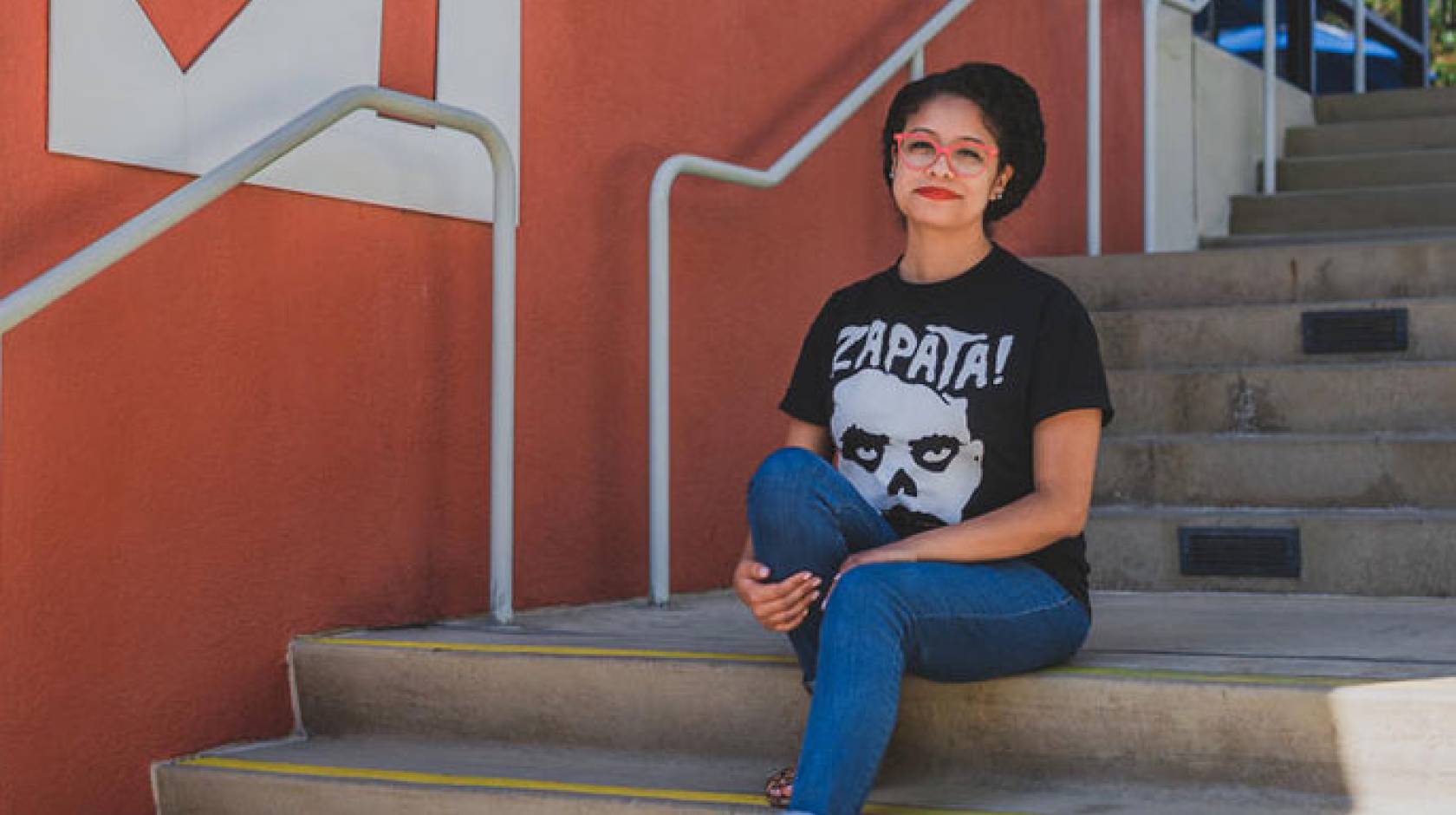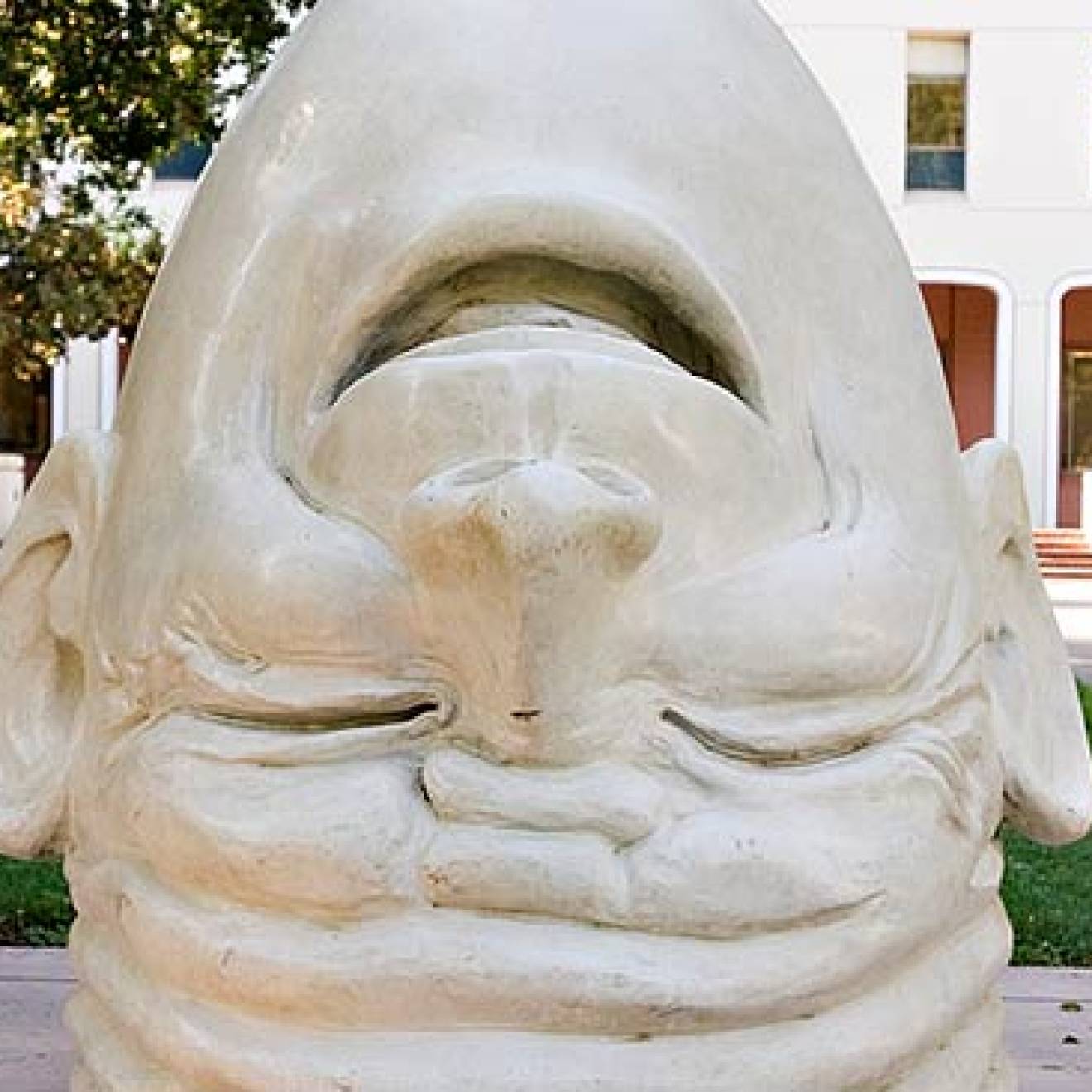Tess Eyrich, UC Riverside

Marlen Ríos-Hernández is a proud pioneer of a research technique she refers to as “intellectual dumpster diving.” By that, she means she studies trash — but probably not the kind you’d expect.

Credit: UC Riverside
A Southern California native, Ríos-Hernández is a doctoral candidate in the ethnic studies department at the University of California, Riverside. Before arriving at UC Riverside, she trained as a musicologist — “basically a music historian,” she explained.
As a researcher of punk music, the “trash” she sifts through is more akin to countercultural relics that have been discarded or ignored by traditional archivists. Through her work, she hopes to shed light on some of punk’s early pioneers, many of whom have gone overlooked by mainstream chroniclers of the genre who have historically portrayed it as white and male-dominated.
“Punk has always been diverse,” Ríos-Hernández said. “Women, people of color, and queer-identifying people have been part of punk movements across time, and as a punk fan myself, I think it’s important to recognize that representation. My work is a way of asking, ‘Who carries the weight of the things that we love?’”
In particular, her dissertation charts the growth of punk scenes in Los Angeles, Mexico, and Latin America from the late 1970s to the mid-2000s. The latter period, she said, holds personal significance for her because it was when she experienced her own coming of age as a punk fan and activist under the George W. Bush administration.
“There was a huge anti-war movement going on at the time, and my brother had been deployed to Iraq,” Ríos-Hernández said. “I got involved in the punk scene in South Gate with many of my friends who came from similar backgrounds — first-generation students, mixed-status families. Punk helped us during what was an especially difficult and terrifying time to be an immigrant or come from a mixed-status family in America.”
The punk scene quickly became both her preferred creative outlet and port of entry to social justice work. Bands like the Casualties, the Germs, and the Devotchkas were among her original favorites, but it wasn’t until she found Alice Bag — a Chicana pillar of the Hollywood punk scene — that Ríos-Hernández’s scholarly research began to take shape.
‘Violence Girl’

Credit: Jimmy Lai
Born Alicia Armendariz in East L.A., Bag rose to prominence in the late 1970s as the lead singer and co-founder of a band called the Bags. Part of West Coast punk’s vanguard, she quickly became known for her stage persona as a “violence girl,” her image a symbol of Chicana resilience in the face of both political uncertainty and the increasing homogenization of the punk scene.
This year, Ríos-Hernández will work to complete her studies at UC Riverside as the recipient of a $20,000 dissertation fellowship from the American Association of University Women. Designed to tackle some of the barriers women face in education, the association’s dissertation fellowship program is dual-sided, enabling recipients to pursue both academic work and community projects that empower women and girls.
Along with finishing her dissertation, the fellowship will allow Ríos-Hernández to continue her work as a mentor for other first-generation humanities students who want to pursue graduate school. She also recently started as a staffer at the Chicano Student Programs office, where she serves as its graduate student events and programs coordinator.
As a researcher, she said, one of the highlights of her current work involves leading students from a variety of arts and humanities departments through interactive, punk-inspired lectures. One tackles a dance style called the pogo — think of it as a less aggressive, more equitable predecessor to moshing — which Ríos-Hernández detailed in an essay recently accepted for publication in “The Oxford Handbook of Punk Rock.”
Investigating so-called “trash” like the pogo and its transformation into moshing is part of an effort to encourage students to question why things are remembered the way that they are. And for those who want to continue their education in punk, Ríos-Hernández has plenty of resources to recommend, beginning with Bag’s memoir, “Violence Girl,” and the 1981 documentary film “The Decline of Western Civilization.”
“Recordings of many L.A. punk bands are very rare, but what’s happening now is that the punk elders who are still with us are putting their recordings on the internet or writing their memoirs,” Ríos-Hernández said. “It’s a really vibrant time to be listening to what’s coming out about the L.A. punk community.”
The renaissance of sorts has been a boon for her research. Still, Ríos-Hernández admitted, she sometimes feels torn between her more scholarly pursuits and the age-old punk mentality that places a premium on resisting conformity.
“It’s been really interesting writing about punk music as a graduate student and trying to make a career out of it, because punk traditionally goes against being part of the system,” she said. “But maybe because I’ve gotten this far, I feel like I have a responsibility to do this work right — a responsibility both to fans of punk and to the people who made this music in the early days and continue to make it now.”
Likewise, Ríos-Hernández added, she feels a profound responsibility to UC Riverside, the place she affectionately calls “the unsung hero of the UC system.”
“I wouldn’t trade my time here for the world,” she said. “I fully intend to come back after I graduate — that’s my dream.”

